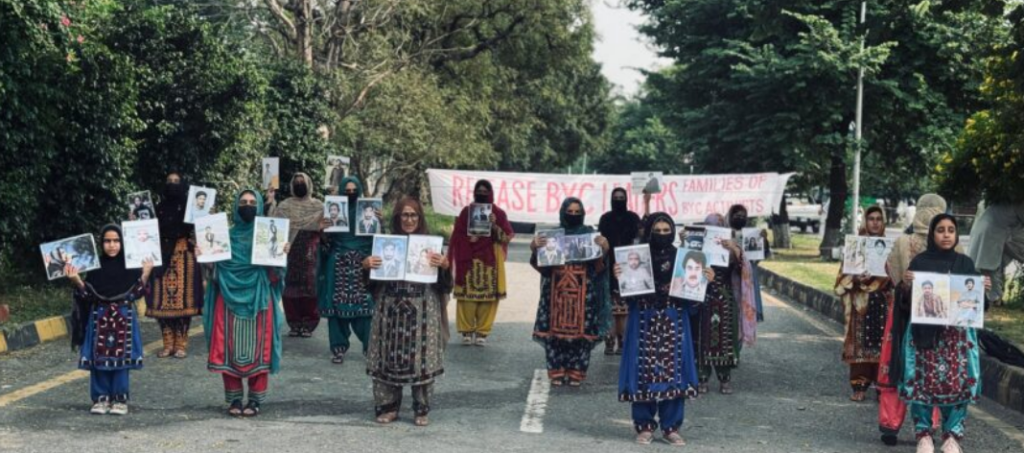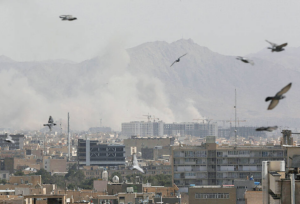
Today marks the 61st consecutive day of the sit-in by Baloch families in Islamabad, who continue their peaceful protest demanding the release of Baloch Yakjehti Committee (BYC) leaders and an end to the systematic practice of enforced disappearances of Baloch people. These families, who travelled from Balochistan, are determined to make their voices heard despite facing constant intimidation and harassment by authorities.
For over two months, elderly women, children, and relatives of the disappeared have been enduring extreme weather conditions, including scorching heat and heavy rain.
The families have also been subjected to daily profiling and harassment by Islamabad Police and secret service agencies, with roads around the Press Club sealed off to restrict their movement. Additionally, the authorities have prevented them from setting up proper camp spaces.
Critics argue that the denial of space to these families is not just an act of cruelty but a deliberate political decision to silence the Baloch community’s legitimate grievances. Instead of addressing the families’ demands for justice, the state has continued its campaign of repression, with authorities extending the illegal remand of BYC leaders and using violence to crush dissent. The protesters remain resolute, demanding the immediate release of the disappeared and accountability for the human rights violations taking place.
In a related development, today also marked the 41st consecutive day of the protest camp organized by the family of Zahid Ali, a 25-year-old student from Karachi University, who was forcibly disappeared along with his rickshaw on July 17, 2025.
Zahid’s family, led by his father Abdul Hameed, has been at the forefront of this sit-in despite the elderly father suffering from hepatitis.
However, today’s protest saw an unfortunate interruption as Abdul Hameed’s health deteriorated, and he was unable to continue the sit-in due to a serious decline in his health. This interruption highlights the immense toll that enforced disappearances take on the families — forcing them to live in constant uncertainty while protesting at the cost of their physical health and mental well-being.
The family continues to demand the safe recovery of Zahid and has vowed to continue their protests until their son is returned. “We will not rest until Zahid is safe,” Abdul Hameed stated in a previous speech, reflecting the collective resolve of all families affected by enforced disappearances.
Meanwhile, in Quetta, the protest for the recovery of missing persons, organised by the Voice for Baloch Missing Persons (VBMP), continued for the 5938th consecutive day under the leadership of Niaz Muhammad, a member of the VBMP’s Executive Committee. The camp, set up in front of the Quetta Press Club, has become a symbol of Baloch resistance, with visitors from various walks of life coming to show their support.
These solidarity visits have only strengthened the resolve of the VBMP activists and families. People from different backgrounds have expressed their support for the Baloch cause, demanding justice for the missing persons and an immediate end to the practice of enforced disappearances that continues to affect thousands of Baloch families.
As the protests in Islamabad and Quetta persist, the Baloch community continues to challenge the state’s systematic denial of their basic rights, calling for an end to arbitrary arrests, abductions, enforced disappearances and extra judicial killings that have left families across Balochistan in pain and uncertainty.








